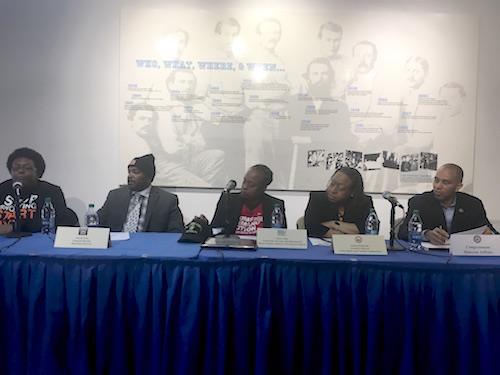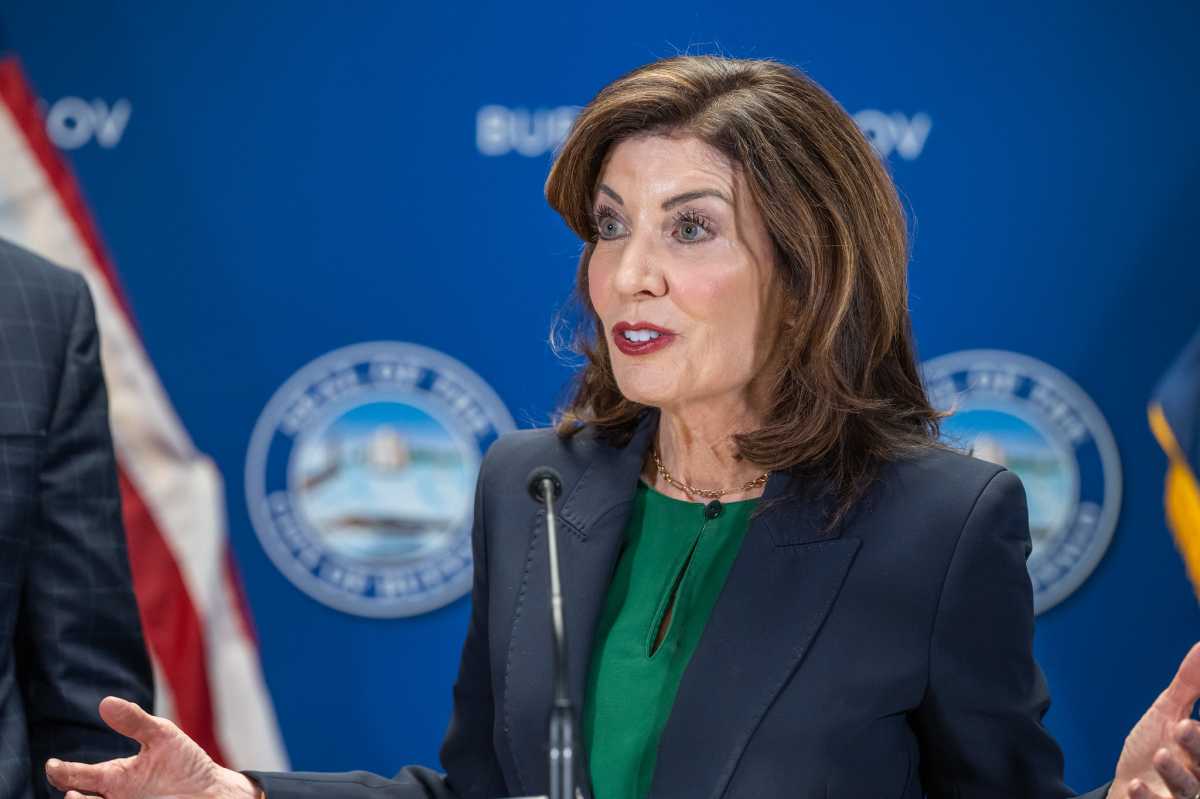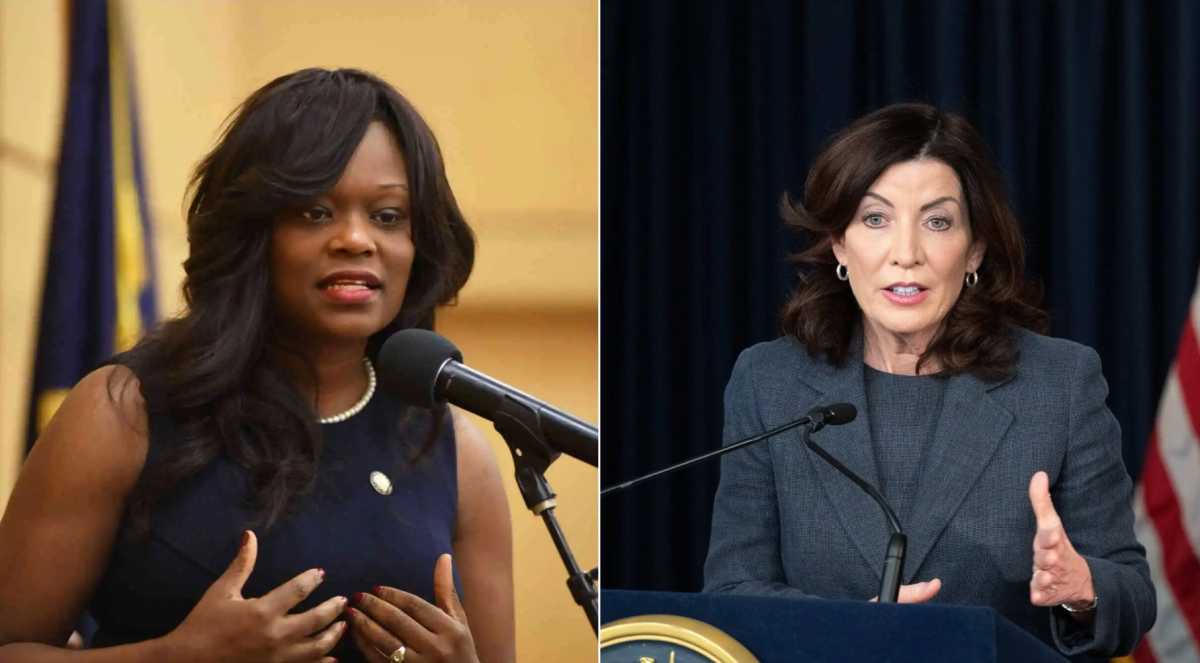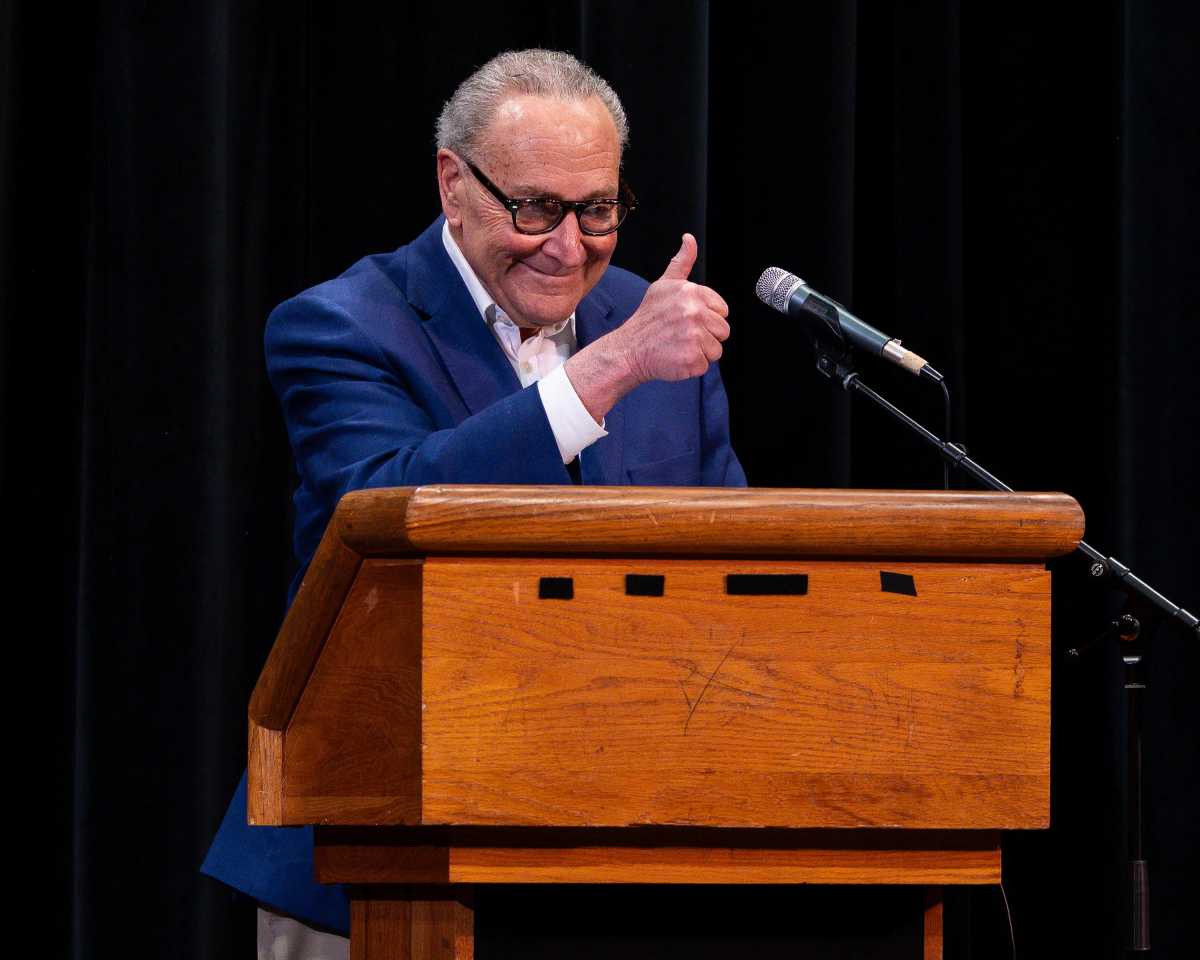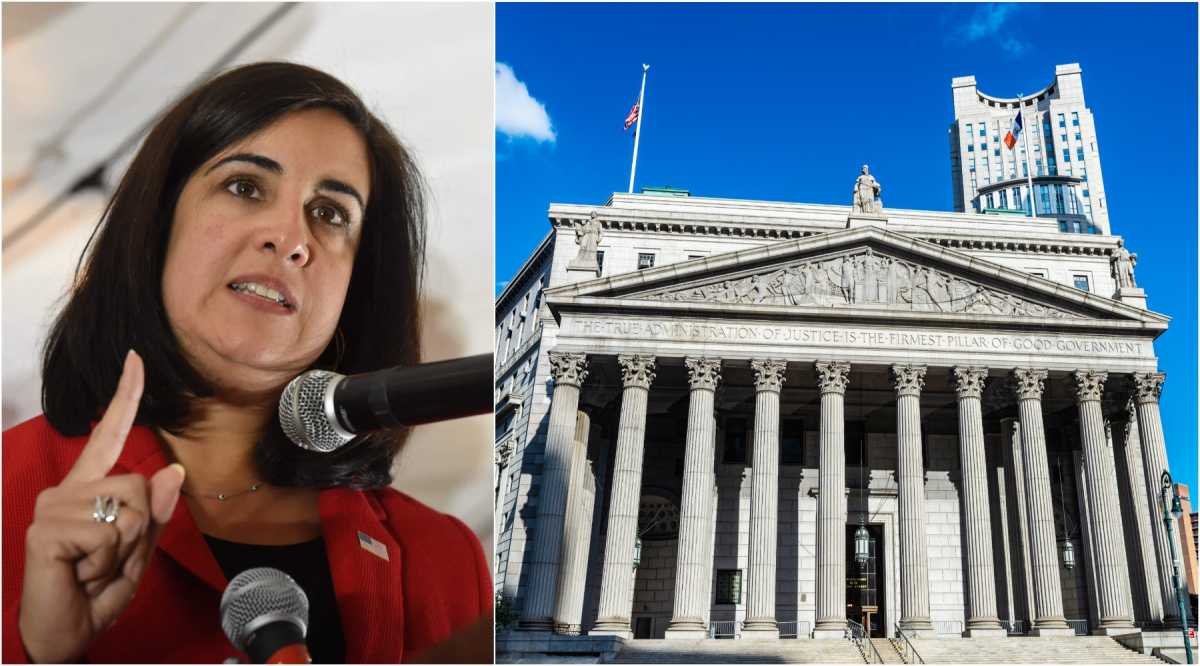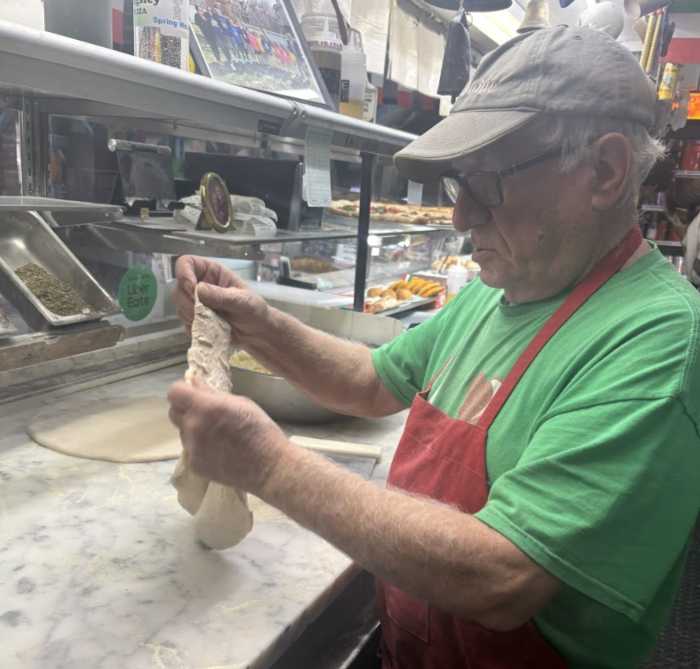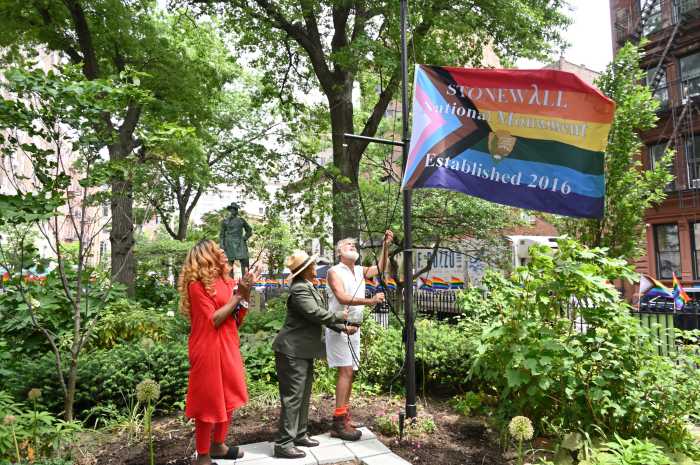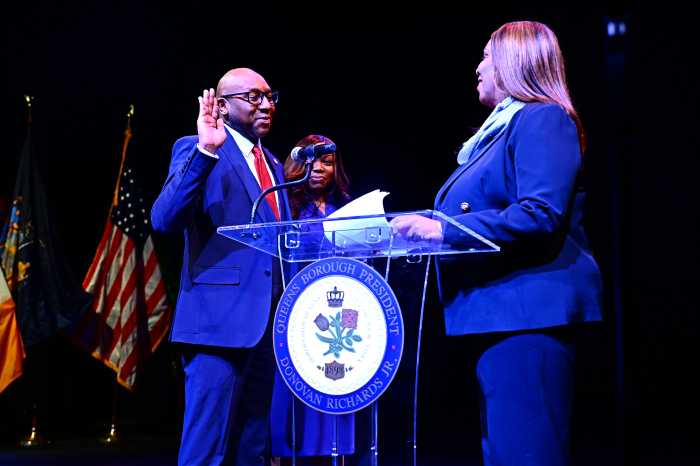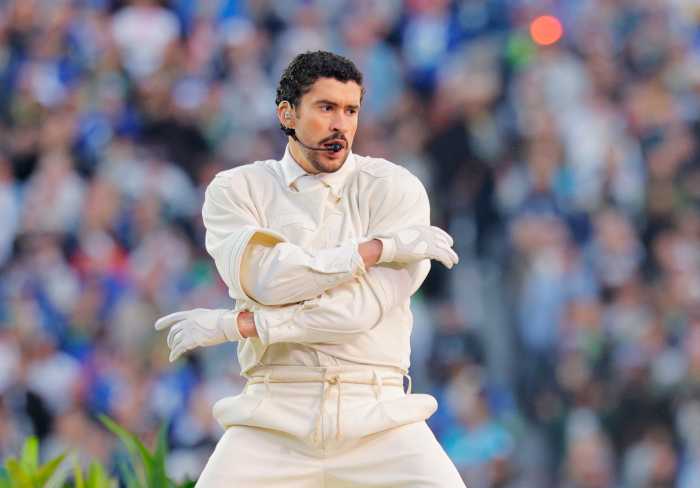Rep. Hakeem Jeffries (D-Central Brooklyn, Coney Island), City Council Member Mark Treyger (D-Coney Island, Bensonhurst, Gravesend) and State Sen. Diane Savino (D-Coney Island, Sunset Park, Staten Island) hosted a town hall meeting Saturday focussing on the epidemic of gun violence.
The February 14 mass shooting at Marjory Stoneman Douglas High School in Parkland, Fla inspired the meeting.
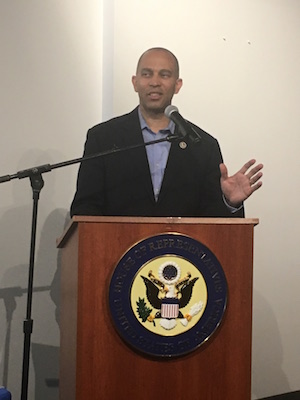
In kicking off the meeting Jeffries noted there are 300 million guns in America, while Treyger blasted lax American gun laws to demonstrate how dangerous that number is. ”A legal gun owner can sell his gun without issue on Craigslist,” Treyger declared.
Tiffany Murray, Program Manager at S.O.S. Bed-Stuy, which “works closely with local organizations, neighborhood churches and pastors, community residents and the individuals most likely to commit a shooting,” added onto Treyger’s remarks, re-calibrating the focus of the talk to the impact of gun violence on children. “We’ve got adults providing youth with guns…Getting them into fights,” she said.
Murray then expanded on the issue of adults encouraging children to engage in gun violence. She said that much of the tension that inspires shootings stems from family feuds lasting generations. “We may try to change the mindsets of each youths” Murray said. “But if the adults responsible for them tell them that violence is the answer…We have to change the normalization of violence. Violence is not normal.”
Derick Scott, Program Director of Opearation H.O.O.D., a city-funded initiative that seeks to prevent high-risk youth from engaging in gun violence, agreed that accepting it as a reality is not an option. “We have to look at certain things,” he said. “What goes into the psyche of an individual that wants to hurt somebody?”
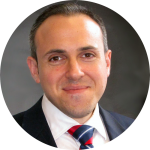

The speakers went on to discuss such social factors that could inspire violence. They offered such examples as the War on Drugs, the crack epidemic of the 1980s and 1990s, and the internalized racism that many inner-city youths experience. “When someone starts telling you you’re nobody, you’ll believe it until somebody comes along and says you’re better than that,” Murray said.
In the more specific case of New York, Treyger highlighted the the inadequate numbers of social workers and psychologists available for the public school system’s 1.1 million students. “We need to support them with love and counseling,” he said.
The speakers all ultimately agreed that the issue was deeply systemic. “We really need to change the culture, and a lot of that comes from education,” said Keisha Boatswain, Executive Director of the Coney Island Anti-Violence Collaborative. She highlighted the group’s in-school trauma training and afterschool programs as examples of positive educational opportunities for at-risk youths.
When Kings County Politics asked Jeffries about his efforts to combat violence at the local level, he asserted, “The underlying dynamic that creates violence must be addressed. We need safety net funding and support to help those who may feel compelled to use guns.”
Jeffries went on to indicate that anti-gun violence advocates once had an immense ally in the Obama administration, especially via the My Brother’s Keeper Initiative. “We can create opportunity for them to live productive lives and achieve the American Dream,” he said.
Ultimately, the problem of gun violence may be bigger than any of the proposed solutions.
“We have a job to do as a community. We’re not superheroes. We can’t point fingers. We have to think collectively. That’s how we bring down gun violence,” Scott said. “We can’t stop it, but we can put a damper on it.”


